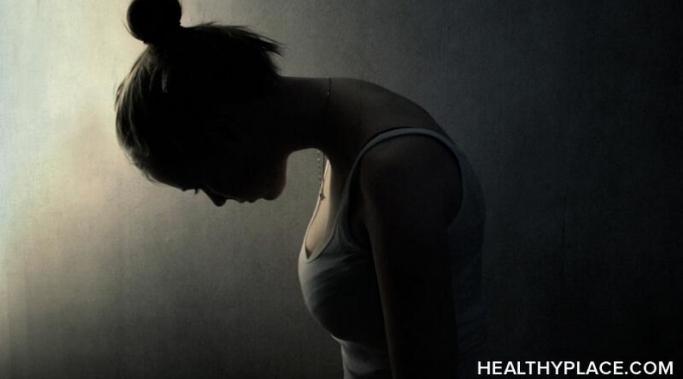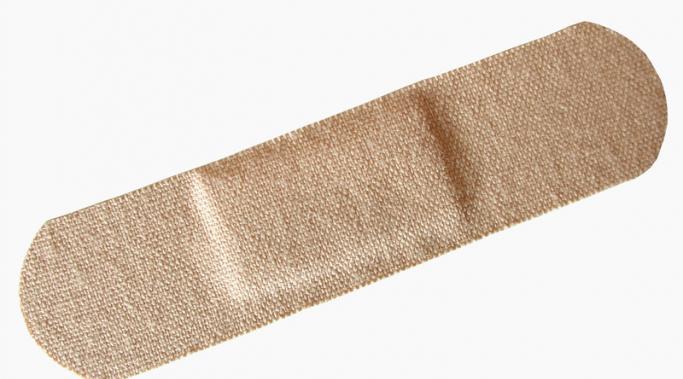Delusions are false beliefs that are held in spite of a lack of evidence or even evidence to the contrary. For example, a delusion might be believing that the FBI is surveilling you every day or that you can predict the future. Delusions are a part of psychosis which can be present in bipolar depression or bipolar mania.
Delusions are easiest to spot when they’re exaggerated, like in the above examples, but I would suggest that delusions are much more common when we give them credit for. I would suggest that delusions are present in most cases of severe bipolar depression.
Depression – Breaking Bipolar
One of the most controversial things the latest version of the Diagnostic and Statistical Manual of Mental Disorders (DSM-5) did was remove the bereavement exclusion from the depression diagnosis. Previously, people grieving the loss of a loved one couldn’t be diagnosed with depression for two months after the loss. Now, however, this is no longer the case. Now, even a person grieving the loss of a loved one can be diagnosed with depression.
And some people say this is a further medicalizing of normal emotion. I, however, would argue that there was a good reason for this change and that skilled clinicians can tell the difference between grief and depression. Here are some ways grief and depression differ.
In the presentation I give to schoolchildren, I mention that, at various points in my history, I self-harmed. I cut myself. It’s a dirty truth, but there it is.
And not surprisingly, one teen asked me today, “Why would anyone cut themselves?”
Good question. Whole books have been written exploring this question and there is no single answer to why people self-harm. However, as to why most self-harm: it seemed like a good idea at the time.
When I speak to kids about my experience with bipolar disorder, really, I have a series of failures to explain. I tell them how treatment after treatment failed. I talk about drug failures, the failure of the vagus nerve stimulator and the failure of electroconvulsive therapy. I lot of my sentences have the word, “unfortunately,” in them.
And after one of my presentations last week, one person asked what I would say to someone who was going through a similar experience. I thought that was a very important question.
So here’s what I would say to someone who’s experiencing treatment failure.
A reader recently contacted me and asked me about psychomotor agitation. Psychomotor agitation is actually a symptom of bipolar hypomania and bipolar mania (and depression) and yet few people know what this means. In fact, according to this study, it is poorly defined and measured even within the medical community. Psychomotor agitation is often translated into “restlessness,” which doesn’t seem overly descriptive to me.
So here’s my take on psychomotor agitation: how it feels and what we know about it.
I first started receiving psychiatric treatment when I was 20 years old. At that time, I was pretty separated and not very attached to my parents. Nevertheless, they and their opinions did have an impact on me. And when I told my mother I had bipolar disorder her reaction was akin to not believing me. She was entirely ignorant about mental illness (and to be fair, I had been too) and mental illness treatment.
She, naturally, wanted me to treat this problem with herbs and other nonsense. And in spite of the fact that I was detached from this woman, her lack of support affected me. At the time, all my energy was being used to fight bipolar disorder, and now I had to fight her too. It was kicking me while I was down. Way, way down. And while she didn’t see it that way, I can attest to the fact that it sure as heck felt that way.
But luckily for me, I was not under her care. Luckily, even though she eventually pressured me into trying out alternative nonsense, I still got the real, medical help I needed. Had I have been younger, this might not have been the case.
And unfortunately, some youth are in this position right now. Some youths feel they have a mental illness and are in the charge of their parents’. And some youths have even told their parents that only to be met with a wall of disbelief or told they’re “overly dramatic.”
I feel for these youths. They’re in a really tough spot. But there are things youths can do even if a parent doesn’t believe their son or daughter has a mental illness and refuses to support their desire to get help.
Today I tuned into a webcast on managing bipolar depression. I wasn’t sure what to expect although I was aware the webcast was designed for doctors so I knew the level of discourse would be high.
And I must say it was a great hour. Granted, I knew the vast majority of what was being presented but the nuggets of new items here and there definitely made it worthwhile.
What’s more is that this view on managing bipolar depression is evidence-based and they present the numbers behind what’s recommended. They make clear which studies are drug company-funded and which are not. It’s the kind of information that I wish every doctor knew.
And, if you have bipolar, especially bipolar depression, it’s the kind of information you should know too.
Recently I went through a nasty bipolar medication change. I stopped one antipsychotic in favour of another. Of course, this was to improve my overall treatment. And as I’ve said before, if you change nothing then nothing changes, and in this case, I had to change medications in the hopes of changing my mental wellness.
It did not go well.
What ended up happening was a gradual slide into horrific suicidality. The new med was not effective for me.
But I learned something from this experience. Before changing bipolar medications, it’s a good idea to put into place a medication change safety plan.
I am a very difficult case of bipolar to treat. Believe me. I have been on more bipolar medications than anyone I know and finding an effective cocktail is akin to walking on water. It’s possible, but it’s pretty darn rare. And recently I made a medication change from one antipsychotic to another. It went very badly in a whole host of ways. In fact, I terminated the medication trial early and went back to my previous medication.
I see my doctor this afternoon and now I have to tell him the bad news about how it went. And I feel guilty about failing another bipolar medication. I know he will be disappointed and I feel bad about it.
The first thing I thought of this morning was killing myself. Literally, as consciousness slowly overtook my brain thoughts of suicide were all that were there.
It’s a bad day.



![MP900390526[1]](/sites/default/files/styles/blog_listing/public/uploads/2013/05/MP9003905261.jpg?itok=8oVaR4Fn)
![MP900387479[1]](/sites/default/files/styles/blog_listing/public/uploads/2013/05/MP9003874791.jpg?itok=H3noVYZU)




